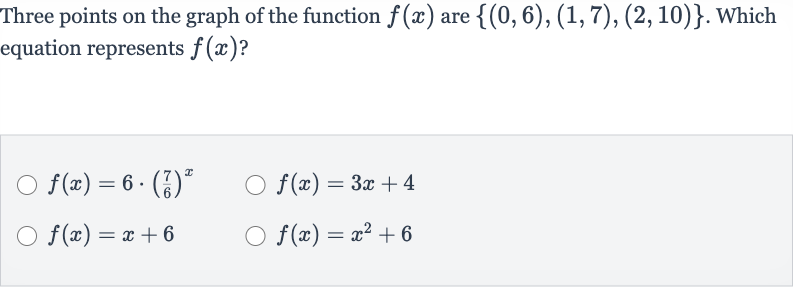Full solution
Q. Three points on the graph of the function are . Which equation represents ?
- Check Function : We will test each given function with the points provided to see which one matches all the points.Let's start with the first option: .We will plug in and check if ..
- Check Function : Now we will plug in and check if ..
- Check Function : Next, we will plug in and check if .. does not equal , so this function does not represent for all given points.
- Check Function : Let's move on to the second option: .We will plug in and check if .. does not equal , so this function does not represent for all given points.
More problems from Operations with rational exponents
QuestionGet tutor help
QuestionGet tutor help

